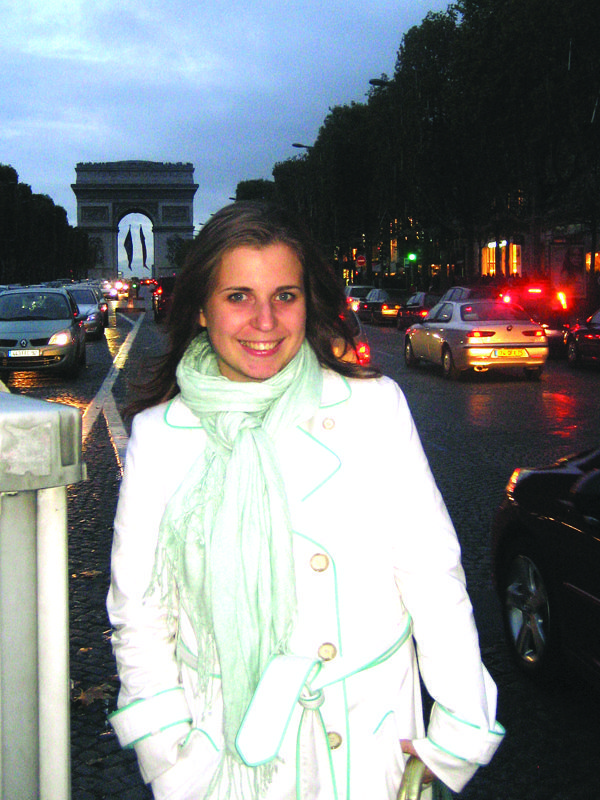
As members of an institution of higher learning, nothing is more gratifying than to observe the intellectual and professional development of the students we are blessed to work with. More than a decade ago, in the fall of 2008, we were delighted to award Sonja Stojanovic (below, left) a Nanovic Institute Graduate Research Grant to study at the French National Library to research literature on the portrayal of French nationalism from the creation of the French nation to its break with monarchy in epic poetry and the epic novel as a background for her MA thesis. Now an assistant professor of French in the Department of Romance Languages and Literatures and a Nanovic Institute Faculty Fellow, Stojanovic offers us the below reflection on her journey from student to scholar to trusted advisor.

This summer, once again, I am dealing with ghosts. It has been three years since I spent months exclusively engulfed in questions of spectrality, of returns.
Summer 2016: a room under a roof in Providence, RI. I am furiously writing to complete my dissertation for an August defense; “Spectral Preoccupations” is indeed the order of the day.
Summer 2019: sweltering heat in South Bend, IN. I am poring over this same dissertation with some distance, reworking it into a book, and wondering who wrote what I pertinently know are my words, and dealing with my own ghost.
I write about how spectrality allows us to rethink not only the contemporary French novel, but also what it means to be contemporary. As I retrace my steps, and as I follow the traces and words of authors I read, I am then, and I am now.
This summer, once again, I am dealing with ghosts. I read a report written more than a decade ago, in 2008, entitled “The Madeleine Cemetery and the Resting Places of Memory.” I am a first-year master’s student at Notre Dame studying the French Revolution. I am writing a summary of my research trip to France made possible by a Nanovic Institute Graduate Research Grant. I recount how I am following the traces of a once famous 18th-century writer, under the expert guidance of Professor Julia Viglione Douthwaite, who assigned his controversial pro-royalist novel, Le Cimetière de la Madeleine [The Madeleine Cemetery], a retelling of the final days of the French royal family during the Revolution, in her class “A Revolution in Fiction” (a copy of the book is held in the Rare Books & Special Collections at the Hesburgh Library). I explain that, at the French National Library (BNF) in Paris, I found several of his other works (novels, pamphlets, and essays) and noticed how he manages to work in a defense of this very novel in all of his subsequent writing – talk about an obsession with one’s traces!
I read my own words: I am confident, I am passionate, I am excited, I love to do research. I now know that a mere two years later, I am going to start pursuing a Ph.D. degree at Brown University and leave the 18th century behind. Yet, even though I now work on contemporary fiction, I am still thinking about memory, about the traces we leave behind, about the ghosts that haunt us; I have not moved on either. For this is what re-search is: searching again and again, coming back to the same questions, perhaps without even noticing. Following an author’s traces, following in the footsteps of an advisor, finding one’s own way in an unexpected manner.
I am now an advisor, I write recommendation letters for students who want to do research in France with the support of the Nanovic Institute for European Studies. This summer, once again, I wonder what ghosts are yet to come.
Sonja Stojanovic
Assistant Professor of French
Concurrent Faculty, Gender Studies Program
Faculty Fellow, Nanovic Institute for European Studies